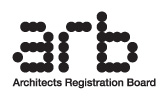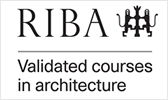Overview
Encouraging debate in Architecture
The Master of Architecture (MArch) RIBA Part 2 course at LSBU promotes a studio-based culture which encourages debate and enquiry about contemporary societies, the postmodern city, and relationships between urban and landscape conditions. These are considered through a range of innovative and personal responses to architectural design projects; environmental and constructional technologies; critical research expressed in extended, dissertation writing, and the skills needed to operate as a progressive professional practitioner.
Our various design studios offer their own scholarly programmes and positions appealing to a wide and diverse range of interests. The design modules offered are underpinned by taught modules in: History and Theory; Energy and Resource Efficiency in Architecture; Professional Practice and Technology.
This course will see you build on analytical design skills and professional competences established at undergraduate level, with a focus on innovation in design, construction, and resource efficient technology. Our dedicated studio spaces and digital workshops are designed to support peer group conversation, thus enabling students to develop an understanding of and methods relevant to contemporary professional practice, together with an ability to produce complex and diverse design proposals.
Overall, the Master of Architecture course is intended to engage critical thinking through design, by helping students develop their problem-solving skills, on prescient issues of environment, politics, society, economics, and culture. This plethora of challenges all form our studio conversations.
When you graduate, you’ll be ready to start your second stage of professional practical experience in an architect’s office before progressing to the RIBA Part 3 professional practice course and examination.
The MArch course nurtures a good understanding of the principles of equality, diversity and inclusion. We are a strong enabler of a fair, balanced, equal opportunity environment for all students. We believe that the transformational opportunities the MArch course affords should be opened to all people of different backgrounds, race, age, class or creed.
Each year, we hold a range of Architecture events to help you develop your Architectural knowledge and experience and meet future employers. We also hold an End of Year Exhibition in the LSBU Hub. This is an opportunity for students from across all years and Architecture programmes to showcase their creativity and network with future employers from leading architecture firms in the UK and overseas.
.You can browse some of the work from the 2023 show on Dezeen.
Why Architecture at LSBU?
- star
- Ranked 3rd amongst London Modern competitors for Overall Score in Architecture (Complete University Guide 2021).
- check-circle
- Professional accreditation – the course is fully validated by the Royal Institute of British Architects and prescribed by the Architects Registration Board. The course satisfies the criteria held jointly by the RIBA and ARB for part 2 courses in architecture.
- bullseye
- Experience - with roots in London Council School of Building (1904) and Brixton School of Building (1940), LSBU has been offering architectural education for over 100 years.
- space-shuttle
- We have some of the best workshops in the UK and a lead research group DARLAB (Digital Architecture and Robotics Lab).
- bar-chart
- No.2 for satisfaction with teaching in London (Guardian League Tables 2020).
| ModeFull-time | Duration2 years | Start dateSeptember | Application code4592 | Application method Direct to LSBU |
| ModePart-time | Duration3 years | Start dateSeptember | Application code4591 | Application method Direct to LSBU |
Watch our video to see how you can make yourself at home studying at LSBU.
Location
London South Bank University student union is located at 103 Borough Rd, London SE1 0AA.
If you are visiting our Southwark Campus, you may wish to use our downloadable campus map (PNG File 466 KB). For information on accessibility, see our DisabledGo access guides. See our location page for more details.
Entry Level Requirements
Need further information? Call us on 0800 923 8888 to discuss entry requirements.
This course is usually intended for graduates of architecture courses where students hold a university degree and part 1 professional qualification recognised by the Royal Institute of British Architects (RIBA). Applicants to the course should have a first degree in architecture (2:2 or better); however, the University recognises that individuals may develop additional skills outside university. and will interview such applicants who have developed a high quality portfolio of relevant academic and practice work. All students considered for admission will be required to submit a portfolio of their work, details on submission and content can be found here - Architecture portfolio | London South Bank University
Applicants for this course must also meet the following additional entry requirements:
- Students holding overseas degrees in architecture should, desirably, demonstrate that their work has RIBA part 1 equivalence by contacting the Architects Registration Board regarding the ARB Prescribing Examination.
- Applicants for the part-time course should be working in practice.
- All students considered for admission will be required to attend an interview with a portfolio of work; if located overseas, applicants will be required to send a portfolio of work to the admissions tutor.
- We will also consider applications from those who have gained skills through a wide range of vocational qualifications, or relevant responsible experience.
Choose your country
Select country here:
Missing English and Maths qualifications?
If you do not have the required English and Maths qualifications needed to satisfy the entry requirements for this programme, we have courses available at our partner College that you can take to upskill in these areas. Find out more at South Bank College.
United Kingdom
£9535
Tuition fees for home students
International
£17600
Tuition fees for international students
Tuition fees are subject to annual inflationary increases. Find out more about tuition fees for Undergraduate or Postgraduate courses.
-
Part-time
part-time
MArch Architecture (PT) - Year 1
UK fee: £6356.67 International fee: £11733.33 AOS/LSBU code: 4591 Session code: 1PS00 Total course fee: * The full amount is subject to fee increases, the total shown below is based on current fees.
UK: £18269.17 International: £35200 MArch Architecture (PT) - Year 2
UK fee: £4767.5 International fee: £8800 AOS/LSBU code: 4591 Session code: 2PS00 Total course fee: * The full amount is subject to fee increases, the total shown below is based on current fees.
UK: £18269.17 International: £35200 MArch Architecture (PT) - Year 3
UK fee: £7145 International fee: £14666.67 AOS/LSBU code: 4591 Session code: 3PS00 Total course fee: * The full amount is subject to fee increases, the total shown below is based on current fees.
UK: £18269.17 International: £35200 -
Full-time
full-time
MArch Architecture (FT) - Year 1
UK fee: £9535 International fee: £17600 AOS/LSBU code: 4592 Session code: 1FS00 MArch Architecture (FT) - Year 2
UK fee: £9535 International fee: £17600 AOS/LSBU code: 4592 Session code: 2FS00
The individual Tuition Fee for this course is shown above.
With no statutory funding system for the majority of postgraduate degrees, most students in the UK are self-funding whether you're a Home, EU or International student. One of the exceptions to this is PGDip Architecture, which are treated as undergraduate courses for fees and funding purposes. This means that you can receive access to a student loan via Student Finance England.
The writing up fee:
A student can change to writing up status for the purpose of a lower fee when the examination arrangements have been submitted and approved. Examination arrangements are submitted 3 months prior to submission of the thesis for examination. A student only has one year of writing up at the reduced fee that covers submission, viva, and minor corrections. The writing up fee 25/26 is £1,246
International students
The course is not currently open to international students.
International (non Home) applicants should follow our international how to apply guide.
Home and International entry
| Mode Full-time | Duration 2 years | Start date September | Application code 4592 | Application method Direct to LSBU |
| Mode Part-time | Duration 3 years | Start date September | Application code 4591 | Application method Direct to LSBU |
Postgraduate students and research students should apply through our dedicated application system. Full details of how to do this are supplied on our How to apply section for postgraduate students and our How to apply section for research students.
See our admissions policy (PDF File 1,520 KB) and complaints policy (PDF File 516 KB).
Accommodation
Students should apply for accommodation at London South Bank University (LSBU) as soon as possible, once we have made an offer of a place on one of our academic courses. Read more about applying for accommodation at LSBU.
Finance
It's a good idea to think about how you'll pay university tuition and maintenance costs while you're still applying for a place to study. Remember – you don't need to wait for a confirmed place on a course to start applying for student finance. Read how to pay your fees as a postgraduate student.
Prepare to start
We help our students prepare for university even before the semester starts. To find out when you should apply for your LSBU accommodation or student finance read the How to apply tab for this course.
Enrolment
Before you start your course we’ll send you information on what you’ll need to do before you arrive and during your first few days on campus. You can read about the process on our Enrolment pages.
This is a two year full-time or three year part-time programme leading to the Royal Institute of British Architects (RIBA) part 2 professional award. The course emphasises design as a central activity underpinned by research, with complementary lecture based studies in History and Theory, Technology, Arts and Media, and Professional Management.
Year 1
- Design 401 (40 credits)
- Design 402: Arts, media and digital design (20 credits)
- History and theory: critical thinking (20 credits)
- Energy and resource efficiency in design (20 credits)
- Professional practice and design economics (20 credits)
Year 2
- Design 501 (40 credits)
- Design 502: Arts, media and digital design (40 credits)
- Architecture and theory: dissertation (20 credits)
- Technology 5: technical thesis (20 credits)
Assessment
Design modules are assessed through interim and final design reviews of a design portfolio. Lecture based or taught modules are assessed through written and/or drawn coursework submissions.
Careers
Employability Service
At LSBU, we want to set you up for a successful career. During your studies – and for two years after you graduate – you’ll have access to our Employability Service, which includes:
- An online board where you can see a wide range of placements: part-time, full-time or voluntary. You can also drop in to see our Job Shop advisers, who are always available to help you take the next step in your search.
- Our Careers Gym offering group workshops on CVs, interview techniques and finding work experience, as well as regular presentations from employers across a range of sectors.
Our Student Enterprise team can also help you start your own business and develop valuable entrepreneurial skills.
The course is well connected to key practices in London. Many LSBU graduates also choose to work abroad. You may also use your qualifications outside architecture to enter careers such as journalism, project management, writing, teaching, research, or software and gaming design.
In addition to offering the university award of MArch: Master of Architecture (and RIBA part 2), the course is also a preparation for the second period of practical training. The first period of practical training is usually, but not exclusively, undertaken following completion of the first degree in architecture (RIBA part 1).
To be eligible for admission to the RIBA part 3 Professional Practice Examination, you must have successfully undertaken a recognised RIBA part 1 and part 2 qualification – and have completed a minimum of 24 months eligible practical training.
The Professional Practice and Design Economics module explains the need for a business-oriented and professional attitude to work, and emphasises the need for forward planning of projects.
Graduates from the Postgraduate Diploma in Architecture are employed at Foster and Partners, Niall McLaughlin Architects, Stanton Williams, Wilkinson Eyre, and Zaha Hadid Architects among many other globally recognised practices.
Guest lectures, Exhibitions, Competitions, Accolades & Mentoring
The MArch course is very dedicated to a research centered education. Over the years, we have worked diligently to build up the recognition of our division externally through series of Open Lectures by visiting lecturers, Student exhibitions, Student competitions, accolades, and Mentoring. Our Level 7 Part 2 Architecture Apprenticeship course gives us strong links with industry and so the MArch course at LSBU prepares you to work in architectural practice.
Recent guest lecturers include:
- Roz Barr (principal of Roz Barr Architects, and recipient of the 2012 AJ Retrofit Award)
- Professor David Gloster (RIBA Director of Education)
- Michael Pawlyn (project architect for the Eden Project)
- Professor Peter Salter (architect of the acclaimed Walmer Road housing scheme, and professor of architecture at the Welsh School of Architecture)
- Alex de Rijke, founding partner of dRMM, former Dean of the Royal College of Art
- Carolyn Steel (author of The Hungry City)
- Carl Turner (RIBA Manser award winner for the Slip House, Brixton)
- Mike Weinstock (Director of Research at the Architectural Association, and Director of the Emergent Technology Master of Architecture programme)
Field trips
There is emphasis on the first-hand observation and generation of alternative models for the city. This is developed through field trips to destinations such as Beijing, Berlin, Delhi, Dubai, Havana, Hong Kong, Istanbul, Jaipur, Las Vegas, Marrakech, Moscow, Paris, Seoul, St Petersburg, Tokyo, and Yokohama. All field trips are organised following the current government guidelines on international travel.
Placements
Although architecture graduates make their own arrangements for placements, the school is very often able to direct students to practices who are actively seeking staff.
Accreditation
The course is unconditionally validated by RIBA and offers the professional award of RIBA part 2 on successful completion. The regular validation cycle ensures that your work is carefully sampled by peer reviewers to ensure course content and outputs retain close relevance to professional practice. The course and qualification is also prescribed by the Architects Registration Board.

- The Architects Registration Board (ARB) is the UK's statutory body for architects.

- The professional membership body, the Royal Institute of British Architects (RIBA), champions better buildings, communities, and the environment through architecture. They provide guidance on professional standards, training, support, and recognition that puts their members around the world at the peak of their profession.
Teaching and Assessment
At LSBU there are comprehensive on-campus workshops capable of transforming a broad range of materials. You'll be taught by staff who are experienced industry professionals, having worked for some of the top architectural practices. The studio structure allows you to specialise in an area that matches their research interests and explore highly topical themes around architecture, urban design, social theory and politics.
Personal Tutoring
As a BEA (Built Environment and Architecture) student, you will be allocated a named tutor during your first three weeks at LSBU. The role of your tutor is to be your primary contact for academic and professional development support.
Your tutor will support you to get the most of your time at LSBU, providing advice and signposting to other sources of support in the University.
Your tutor should be the first person at the university that you speak to if you are having any difficulties that are affecting your work. These could be academic, financial, health-related or another type of problem.
You will have appointments with your personal tutor once a semester for 30 minutes throughout your course. You can contact your tutor for additional support by email or in person.
Studio structure
Central to the LSBU concept of postgraduate architecture education is the studio system, operating across part and full-time courses. The studios provide a framework for a range of relevant intellectual and practical specialisms to inform design work, underpinning and contributing to the academic rigour of the architecture programme.
View the School of the Built Environment and Architecture Catalogue 2021/22.




